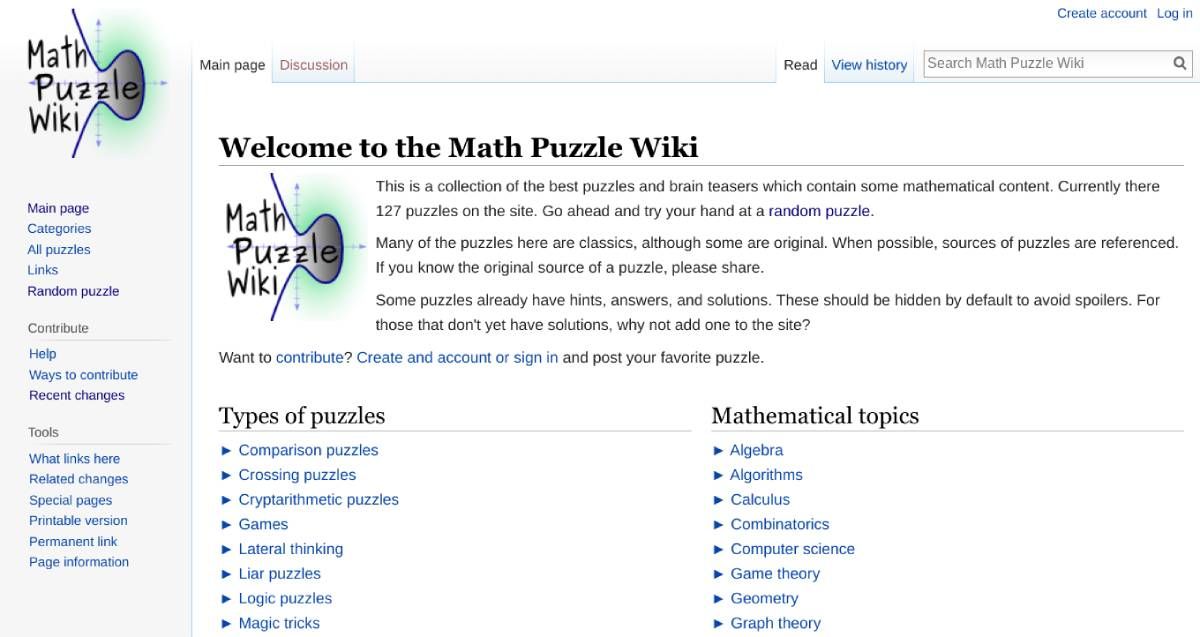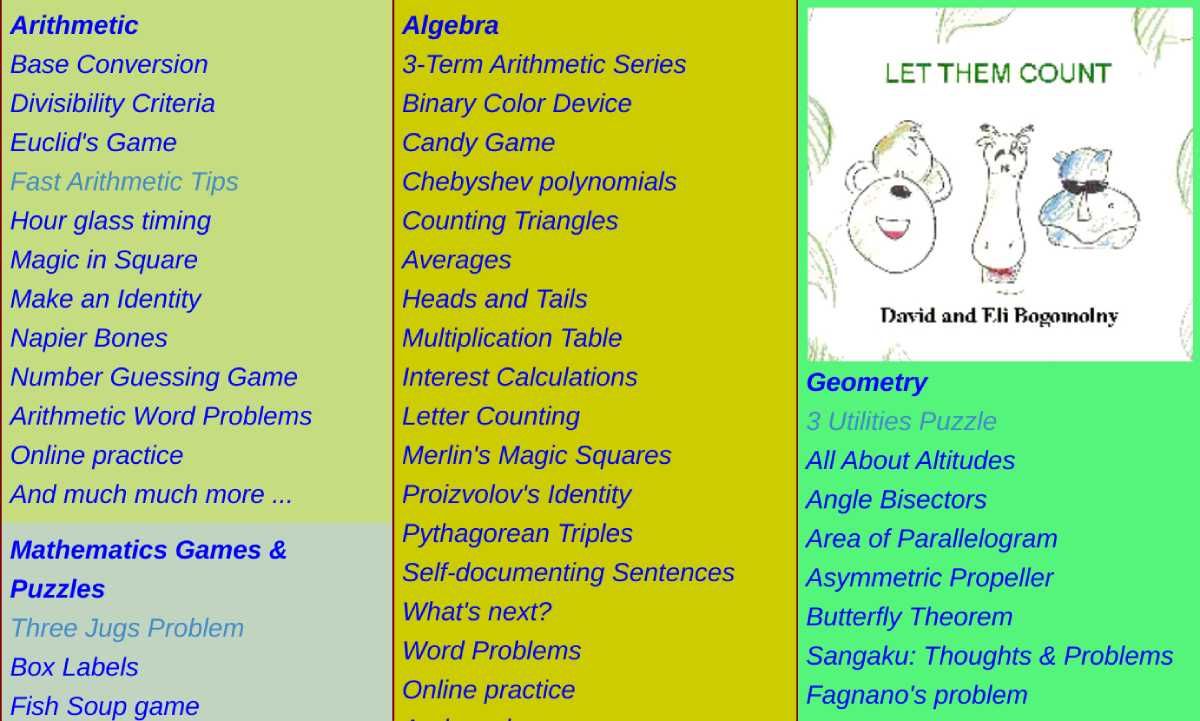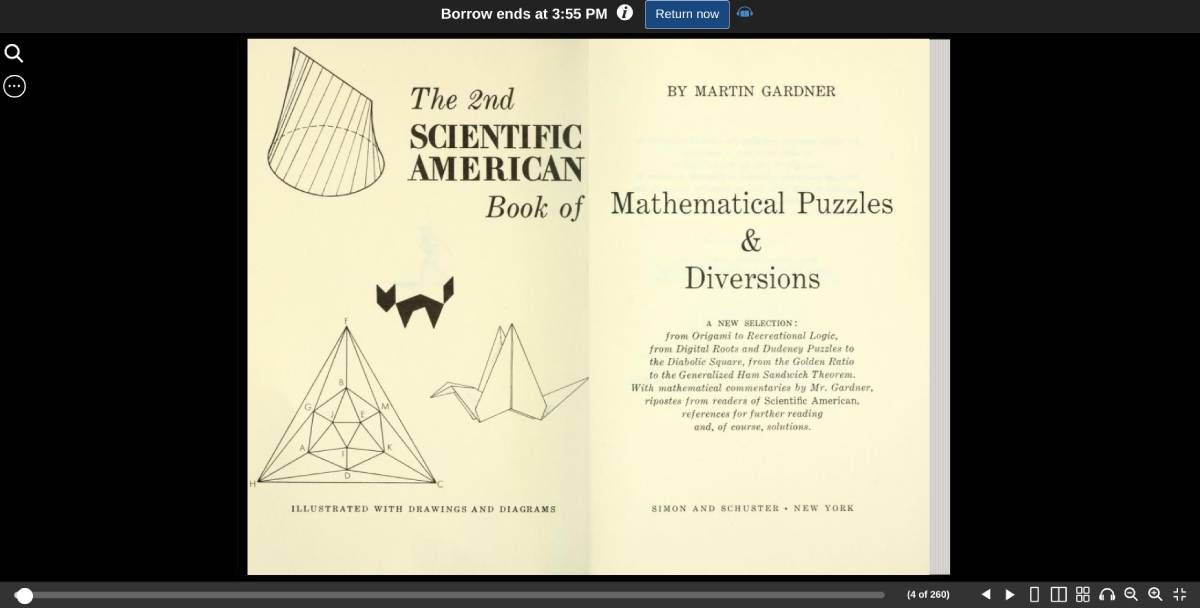There's something oddly satisfying about chewing over a math puzzle and slowly unraveling the answer. So, if you love logic puzzles, here's where you can get some more amazing math riddles.
It seems like every few weeks, a new math problem goes viral on the internet with everyone forwarding it to everyone else. Well, you don't have to wait for your next fix, there are some great websites, YouTube channels, and apps that regularly serve the best math riddles, puzzles, and games for free.
1. Math by Black Games (Android, iPhone): 100 Levels of Challenging Math Riddles
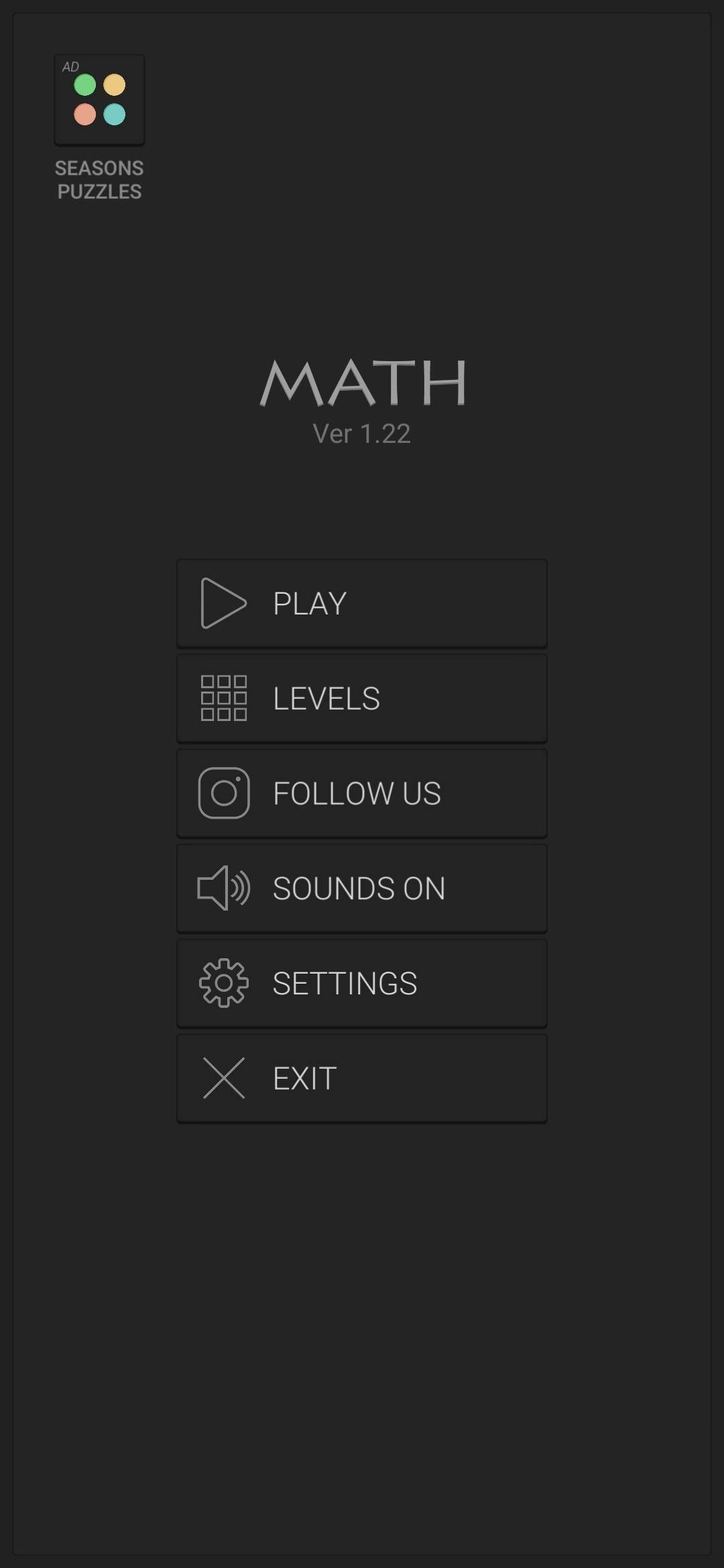
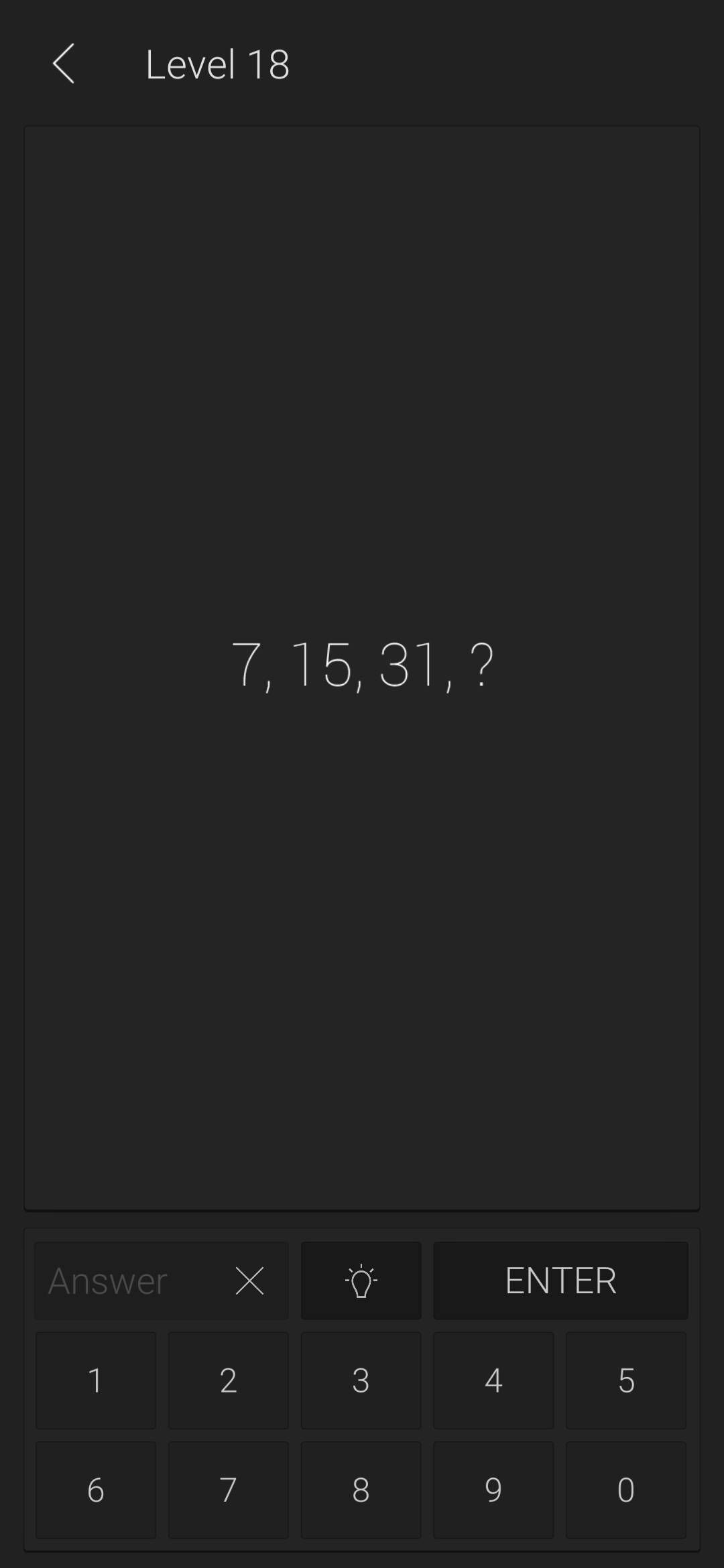

Math by Black Games is a downloadable mobile game with increasingly challenging math puzzles and riddles. You don't need to know calculus or advanced math for these either; it's more about using logic with basic math.
In a total of 100 levels, you'll come across different types of problems. While you begin with simple equations to test your basics, you quickly move to magic squares, pie wheels, and other common quizzes in recreational mathematics.
The good part is the hints and solutions. In case you're stuck in any puzzle, you can watch an ad to get a hint. If the hint still isn't enough to solve it, look up the answer with another ad. Here's a pro tip: the answers don't accept negative integers, so don't waste your time on those.
Overall, Math by Black Games is a set of enjoyable brain-teasers for those who like math problems. It's one of the best apps to improve at math, not to mention train your brain for lateral thinking.
Download: Math by Black Games for Android | iPhone (Free)
2. Mind Your Decisions (YouTube): Best YouTube Channel for Math Puzzles and Riddles
You might have seen some of Presh Talwalkar's popular YouTube videos already through links. Mind Your Decisions is one of the biggest hits in the YouTube math community, with its focus on unraveling the magic of math while tickling your brain.
Each week, Talwalkar presents a new mathematical puzzle, riddle, trick question, viral quiz, or pro tip in an easy-to-understand video. Each of these types is available in its own playlist if that's what you prefer.
For long-time fans, the idea is to pause the video once he poses the question, try to solve it yourself, and then click play to finish watching the explanation. Newcomers should try sorting by the most viewed videos to find Mind Your Decision's best problems. Browse for a while, and you'll realize it's no wonder this is one of the best puzzle and riddle sites on the web.
3. Math Puzzle Wiki (Web): Engaging Collection of Recreational Math Riddles
The Math Puzzle Wiki (MPW) is a collection of 127 recreational mathematics riddles across various topics. Each puzzle comes with hints and solutions, which are collapsed in the default view and you can expand as needed.
On the main page, you can sort through the puzzles by type (comparison, crossing, games, lateral thinking, measuring, logic, magic, etc.) and topic (algebra, geometry, number theory, calculus, sequences, etc.).
A handy "random puzzle" button is the best way to cycle through the existing collection with different mathematical brain-teasers. You can also contribute to MPW by submitting your own puzzles, ideally with a hint and solution. Hey, after all, wikis are where you share information.
4. Cut The Knot (Web): Math Problems and the Deep Theories and Formulas Behind Them
Alexander Bogomolny started Cut The Knot back in 1996 to help the internet learn math in a fun way by solving popular math problems and realizing the deep formulae behind them. While Bogomolny passed away in 2018, the site continues to be maintained by the Wolfram Foundation and is a fantastic repository for math solving and learning.
For a fair example of what to expect, take Bogomolny's explanation of the three jugs problem. You must have heard it before. There are three water jugs of 8 gallons (filled), 5 gallons (empty), and 3 gallons (empty). Use the three jugs to distribute the water between two people evenly.
In this, Bogomolny provides the answer and gives an advanced version of the same problem. And then, he explains the basic mathematical formula behind it and how this problem is always possible to solve when the smaller jugs are mutually prime.
Cut The Knot has hundreds of mathematical problems and deep explanations across arithmetic, algebra, geometry, visual illusions, probability, fallacies, calculus, and logic. Given the site's age, it sometimes uses Java applets that don't work well anymore. But regardless, just reading Bogomolny's article is reason enough to love this site.
5. Martin Gardner's Best Puzzles (Ebooks): The Original Math Puzzle King's Classics
Martin Gardner is widely considered the father of recreational mathematics and the spread of math puzzles and riddles. His long-standing column Mathematical Games in Scientific American popularized the idea of math logic games and remains the benchmark.
While browsing the columns on Scientific American's website requires a paid subscription. The best were collected in books, and those books are free to read online on Open Library, one of the best digital libraries for ebooks. All you need is a free registered account on the Internet Archive.
Mathematical Puzzles & Diversions is a collection of the first few Scientific American columns by Martin Gardner, with a range of puzzles and games. These articles are from the 1950s, so they might feel a bit dated in language, but the math fundamentals are timeless.
Mathematical Circus is the more modern book of games, puzzles, and paradoxes, but just as entertaining if not more so. Gardner is especially great at explaining optical illusions and paradoxes in this one.
You can check other books by Martin Gardner on Open Library for a further dose of his genius. A quick Google search will also point you to his most popular math puzzles, and they're worth a read.
Math Puzzles Help Your Brain, Not Necessarily Your Math
Solving math puzzles might seem like a great way to learn math step-by-step, but it's really not. These riddles and brain teasers are usually more critical for helping your brain develop different ways of approaching problems, not to mention sharpen the switch between linear and lateral thinking. Sure, you'll pick up great math insights along the way, but look at that more as a byproduct of the journey, while you enjoy the mental stimulation.


